Description
Blue Crown Conure is one of the sweetest of the entire Conure group. Our lovely Blue Crowns are very affectionate and social birds, bonding strongly to their owners. They are well trained to be gifted talkers and are capable of learning several words and short phrases. With their intelligent eyes, they are lovely and lovable to play with. Exercise is essential to Blue Crown Conures since they are a naturally high-energy species.
Pet Blue Crowns should be allowed a minimum of 2 hours outside of their cage per day so that they can exercise and play. Blue Crown Conures need plenty of toys to play with, since these birds love to chew, and will need to exercise the muscles in their jaws. If you don’t provide a Blue Crown Conure with a toy or toys, they’ll find something else to chew on. so try to make sure your bird is getting enough stimulation
Blue Crown Conures are mostly green. They have a blend of green and red on their tail feathers and blue feathers on their head and face, which is why they’re called a Blue Crown.
Description
Blue Conures are brilliant and curious birds. They are playful and loving, which makes them love human interaction. Conures are magnificent companion birds when you’re unable or unsure about getting a larger companion bird.
They live 30 years, and some even older due to modern, healthier diets, exercise, and mental stimulation. Thought and consideration should go into the purchasing of a companion bird because these are lifetime companions.
Feeding & Care
Do not feed birds fruit seeds, avocados, chocolate, onions, apple seeds, uncooked beans, uncooked rice, alcohol, or caffeine as these can cause serious medical problems, and kill them.
A Blue Crown Conure’s diet should consist of 65% pellets, and 35% fresh fruit & veggies.
They need daily social interaction both direct with members of your household and indirect out of cage time where they can see and be part of your “flock”. They need at least 2 hours of human interaction outside of their cage. Conures are intelligent, engaging birds that are playful, and affectionate. Though at a few months old, they can go through a nippy stage, if the behavior is corrected and not reinforced by the owners, it will pass within a few weeks.
They love to chew, which is why they need a variety of toys to keep them mentally stimulated, and from getting bored, which can lead to self-mutilation. They also need quite a few foraging toys.
They need a variety of differently sized perches to help exercise and stretch their feet.

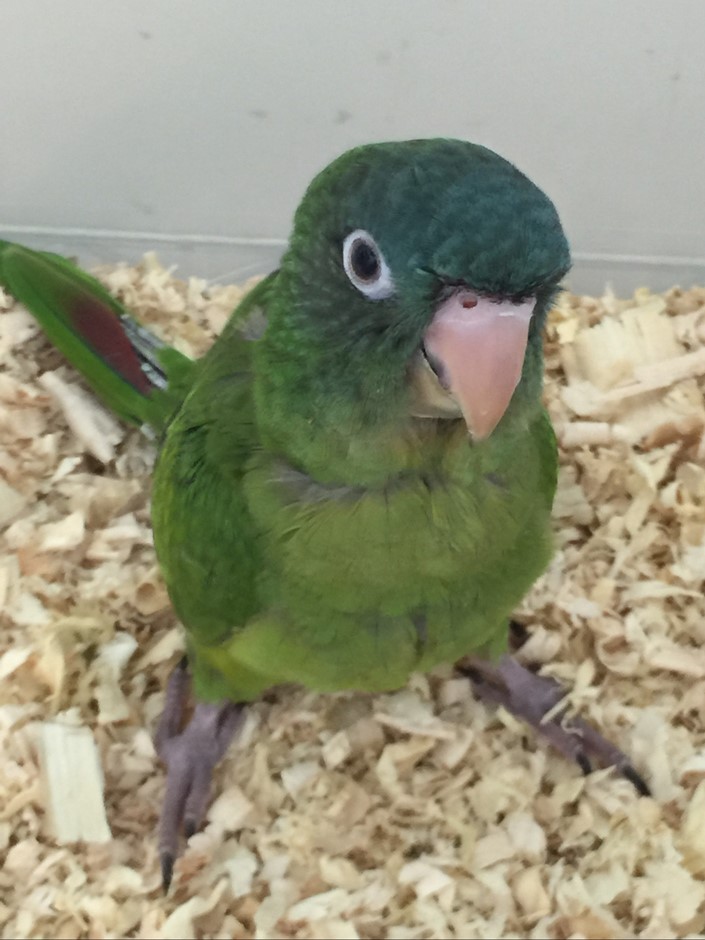
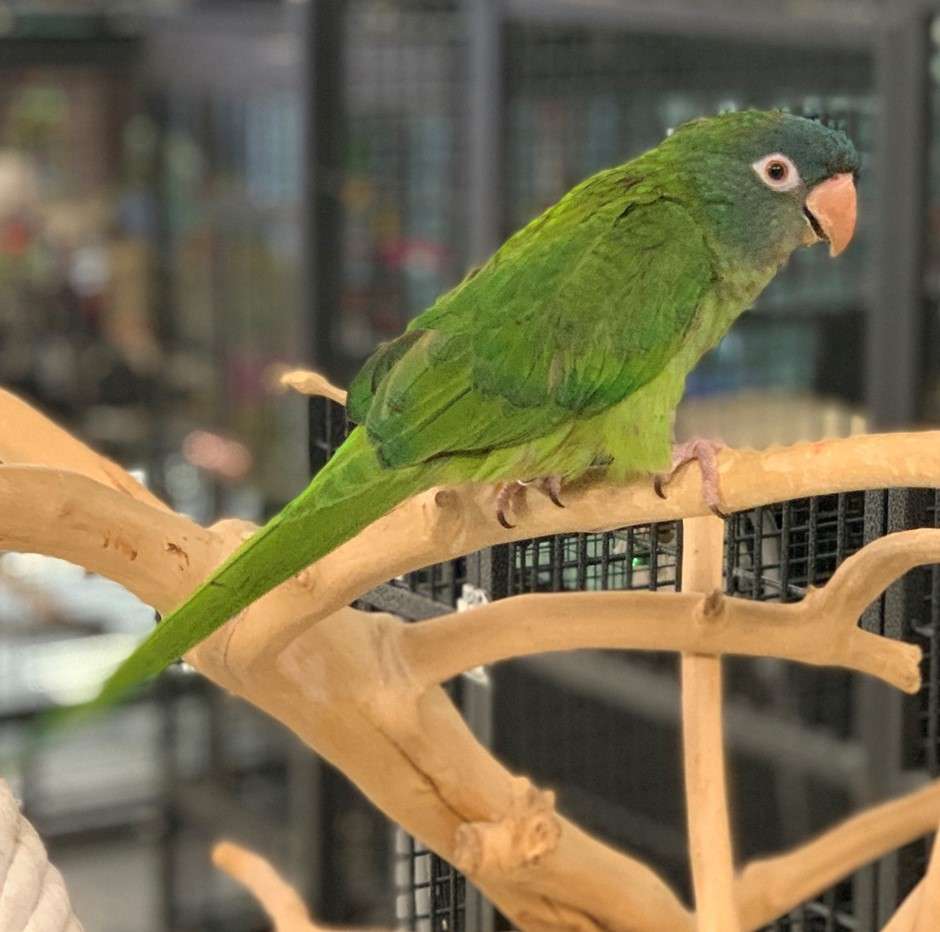
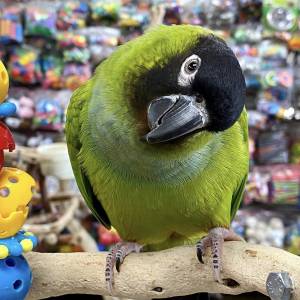
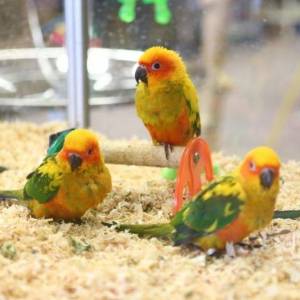
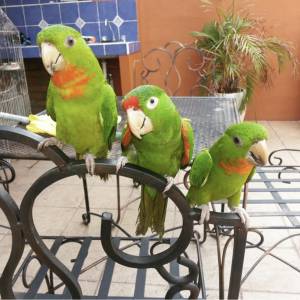
Reviews
There are no reviews yet.